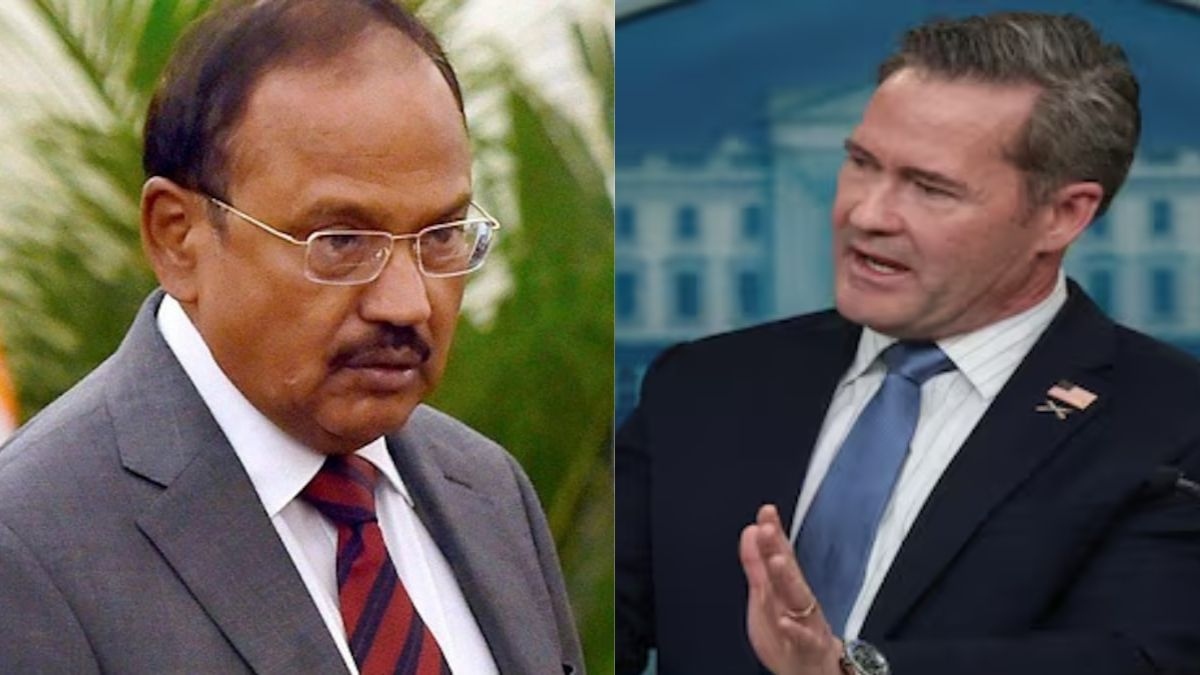As US President Donald Trump on Thursday fired his National Security Adviser Michael Waltz barely 100 days into his second term, the contrast with India’s stability in national security leadership became striking.
While the US continues to cycle through top security officials, India’s Ajit Doval has provided stable and consistent leadership as NSA since 2014.
According to multiple media outlets including Fox News, Waltz’s departure comes amid broader turmoil within Trump’s national security team, highlighting a pattern of instability that has defined both of President Trump’s terms in office.
Waltz’s blunder — a group chat about US military operations in Yemen accidentally including a journalist — put him in the firing line. Defence Secretary Pete Hegseth was also involved in the conversation but appears to have avoided the axe, at least for now.
Waltz has become the first high-profile casualty of Trump’s second term, though far from the first overall. In his previous term, Trump cycled through six National Security Advisers, four Defence Secretaries, and two Secretaries of State.
Waltz, ironically, outlasted Flynn, who was dismissed just weeks into the job in 2017.
In comparison, the Obama administration had only three NSAs across eight years, and George W. Bush had two — still less frequent turnover than under Trump.
This constant change is very different from India’s steady approach. Doval’s steady hand has allowed New Delhi to cultivate consistent relationships with global counterparts — even as Washington shuffled its security leadership.
During Trump’s first term alone, Doval had to navigate working relationships with Michael Flynn, HR McMaster, John Bolton, and Robert O’Brien — plus two acting NSAs.
Doval, a former Intelligence Bureau chief, has served as India’s National Security Advisor since 2014 and is considered one of Prime Minister Narendra Modi’s most trusted aides.
Impact Shorts
More ShortsA 1968-batch IPS officer from the Kerala cadre, he was the first police officer to receive the Kirti Chakra, the country’s second-highest peacetime gallantry award.
As head of the national security apparatus — overseeing intelligence and counter-terrorism agencies — Doval holds one of the most influential positions in the Indian government.
As far as US is concerned, Steve Witkoff, a longtime Trump loyalist and special envoy, is now rumored to be in line for the NSA post, reported Times of India.
For now, Secretary of State Marco Rubio will serve as interim national security adviser while keeping his current role as well.
Citing critics, the ToI report said that the Trump White House increasingly resembles a personality-driven “imperial court,” where cabinet members are expected to demonstrate loyalty above all else.
Conservative commentator Ann Coulter quipped this week: “Would it be possible to have a cabinet meeting without the Kim Jong Il-style tributes?” following yet another sycophantic show of allegiance.
The chaos in Washington has diplomatic side effects. For instance, even as Defence Secretary Hegseth held a call with Defence Minister Rajnath Singh this week in the wake of Pahalgam terror attack, the US Department of Defence did not issue a readout — a reflection of the disarray.
The Indian Ministry of Defence, however, publicly stated that Hegseth reaffirmed US support for India’s right to self-defence after the Pakistan-backed attack.
As Trump’s inner circle reshuffles yet again, India’s experience offers a lesson in how consistent leadership at the top of the national security apparatus can anchor policy and foster trust internationally — qualities currently in short supply in Washington.
With inputs from agencies


)

)
)
)
)
)
)
)
)



